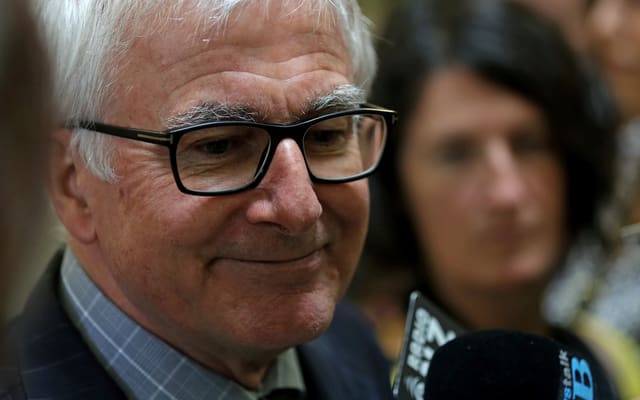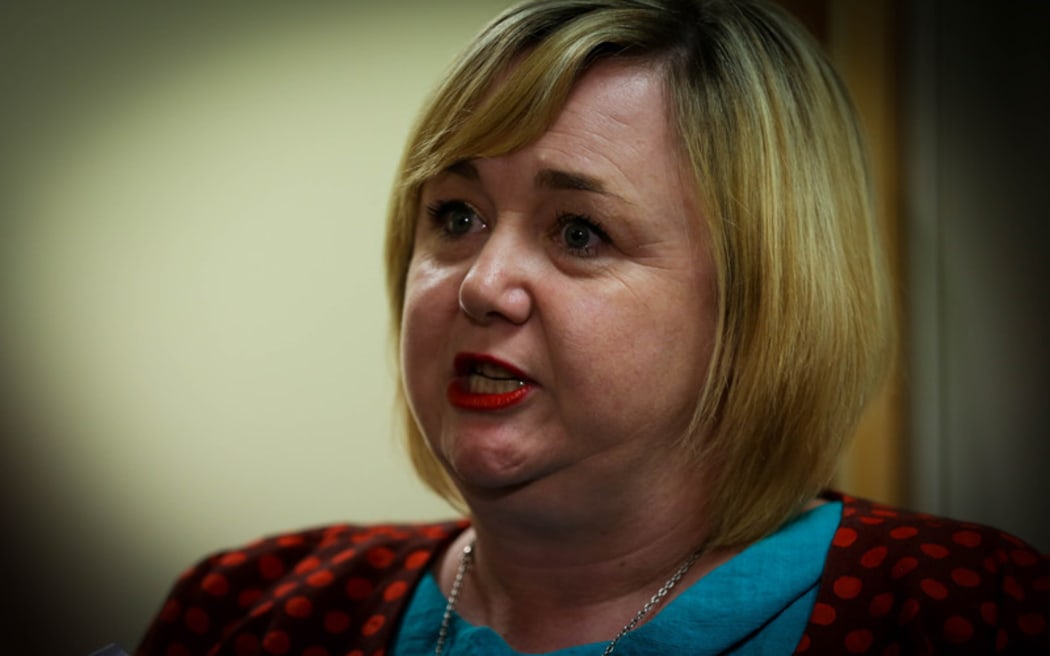Climate Change Minister Tim Groser has rejected suggestion the Government is spinning its new emissions reductions target even though it is lower than 1990 levels.

Tim Groser has defended the Government's emissions target. Photo: RNZ / Alexander Robertson
The Government has committed to what it said was a more ambitious emissions reduction target, but it will only cut emissions 11 percent by 2030 compared with what they were in 1990.
Opposition parties and environmental groups say that is worse than the 10 to 20 percent cut the Government pledged at the Copenhagen climate conference in 2009.
New Zealand will submit the target to the United Nations summit on climate change in Paris in December.
Mr Groser said getting there would depend on technology advances to help cut emissions from vehicles and the country's livestock and said the target was in line with other countries.
Doctor of environmental science at Victoria University Ralph Chapman said the new targets were inadequate and New Zealand could do better.
"The reality is that our economy has to adjust to a zero carbon economy by shortly after 2050, and that's a massive adjustment we have to make. They way we do that is to cut emissions on a plan, you don't just put it off, you start working on it."
But Federated Farmers climate change spokesman Anders Crofoot said it was a very ambitious target and much better than the alternative, which is cutting production and taking money out of farmers' pockets.
He is hopeful scientific progress can bring about a reduction in carbon emissions.
"There have been some quite good breakthroughs at AgResearch in some compounds that seem to be safe for animals, it's fantastic that they are making some breakthroughs, but it is still far from being a commercialised product."
Former climate change negotiator Adrian Macey said today's announcement was "the minimum credible target", particularly as New Zealand had already put on the table a conditional target of reducing emissions 10 to 20 percent below 1990 by 2020 and already had an unconditional target of a 5 percent cut by 2020.
Dr Macey, now senior associate at Victoria University's Institute for Governance and Policy Studies, said cutting emissons by 11 percent from 1990 by 2030 would not help it reach its gazetted goal of cutting them 50 percent by 2050.
"New Zealand, along with other countries, will face pressure to increase the ambition of its target at and after this year's Paris climate change conference. But the international target is only part of the question. A great deal of work is now needed at home to determine the direction of our climate change policies, including the review of the Emission Trading Scheme (ETS)."
Mr Groser said the review of the ETS would put toughening the scheme absolutely on the table.
National weakened the scheme put in place by Labour, but Mr Groser said when the Government did that it did not know what would happen to carbon prices.
"Nobody saw the collapse of the carbon price. Would we have made all of those decisions if we'd been told the carbon price was likely to be 10 cents? Well I don't want to speculate in public but I think you can see the direction of my thinking."
Mr Groser said the Government had picked a conservative target for emission reductions but it would still come at a cost of about $1300 a year to households.
"The burden of the advice we've had from our officials and from the independent think tanks that have done the modelling, just tell us one thing: this is all cost and it has to be borne by somebody."
He said the Government's target was based on cutting emissions from motor vehicles and farming. Both depended on technology advances but he was confident many more electric cars would be in use by 2030.
Mr Groser said he was also optimistic that research on methane emissions from livestock would lead to technology which would dramatically reduce those.
Labour's environment spokesperson Megan Woods said the Government's new climate change target fell short of matching even existing targets.

Megan Woods Photo: RNZ / Alexander Robertson
"Our targets should be at least comparable to what the European Union is doing with an overall target of 40 percent of carbon dioxide emissions below 1990 levels by 2030.
"At the moment we are failing to meet our current targets. That's not surprising because the Government has no plan on how we are going to reach them. We can set all the targets we like, but the simple fact is that this is meaningless unless we actually meet them," she said.
Green Party international climate negotiations spokesperson Kennedy Graham said the Government was not pulling its weight internationally.
"By committing to such a small reduction in greenhouse gas emissions, it means other countries will have to pick up our slack, or we'll get runaway climate change," Dr Graham said.
He said if all countries followed New Zealand's lead there would be catastrophic climate change.

Kennedy Graham Photo: Supplied/The Green Party
"National is missing this opportunity to implement policies that are good for people and the climate. We have no choice but to transition to a low-carbon economy, but National will increase the cost of this transition by delaying," he said.
Mr Groser said he expected plenty of criticism from opposition parties but the Government was serious about doing its bit to respond to climate change.
He said there had been a shift in international sentiment and most countries were committed to reducing emissions.


